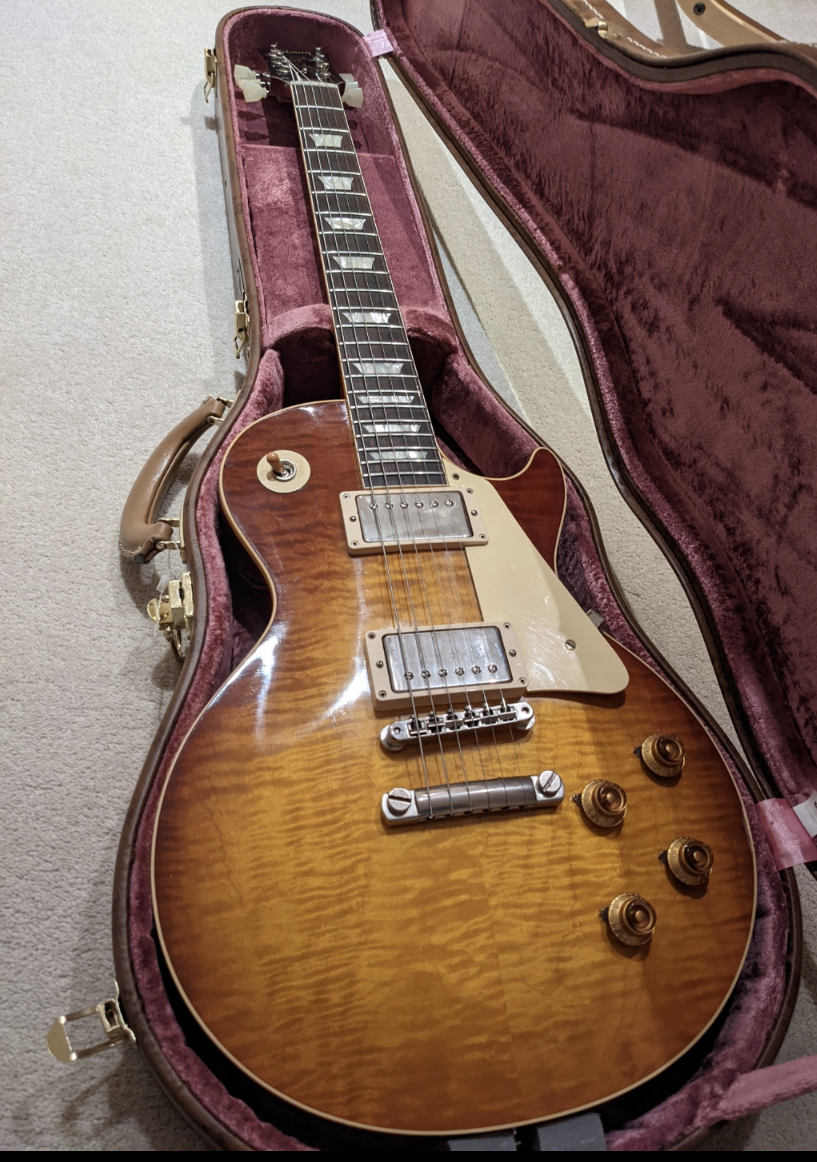Howdy, Stranger!
It looks like you're new here. If you want to get involved, click one of these buttons!
Categories
- 241.3K All Categories
- 22 >> Start Here <<
- 12 New Members
- 8 FAQs
- 86.6K Gear
- 39.5K Guitar
- 3.4K Acoustics
- 1.3K Bass
- 14.6K Amps
- 17.2K FX
- 265 Digital & Modelling
- 765 Other Instruments
- 8.3K Making & Modding
- 420 Gear Reviews
- 107 Guitar Reviews
- 73 Amp Reviews
- 118 FX Reviews
- 87 Other Reviews
- 748 Made in the UK
- 972 Theory
- 1.8K Technique
- 2.1K Live
- 3.2K Studio & Recording
- 2.1K Making Music
- 218 Events
- 15 Guitar Show 2018
- 829 Plug My Stuff
- 105K Classifieds
- 41K Guitars £
- 2.8K Acoustics £
- 138 LH Guitars £
- 895 Basses £
- 10.5K Parts £
- 18.3K Amps £
- 34K FX £
- 2.8K Studio & Rec £
- 6.1K Misc £
- 465 Personnel
- 54.7K Chat
- 36.5K Off Topic
- 1.1K Tributes
- 6.6K Music
In this Discussion
Become a Subscriber!
Subscribe to our Patreon, and get image uploads with no ads on the site!
valve life
 mattacjones
Frets: 506
mattacjones
Frets: 506
in Amps
I had a minor issue recently, swapped the existing valves with some 'spares' - all of which were working once, all of which looked almost brand new. It made no difference, so took it to an amp tech who has told me, he put ALL my premp valves in a valve tester and they were ALL duff i.e. not producing anything like what they should. I'm not a pro, but the amps get used regularly, but I always thought valves worked or didn't work. So this was a shocking discovery - they wear out and degrade. How could I not know this, is it true? Admittedly some were 5-6 years old, but how do you tell if they are on the way out, or should you simply replace after xx years? Cheers
0 LOL 0
LOL 0 Wow! 0
Wow! 0 Wisdom
Wisdom
 LOL 0
LOL 0 Wow! 0
Wow! 0 Wisdom
Wisdom Base theme by DesignModo & ported to Powered by Vanilla by Chris Ireland, modified by the "theFB" team.


Comments
This an area, like so much to do with guitar amps, that could benefit from some hard research. Yes, valves lose "emission" over time but how that affects tone is largely unknown and untested AFAIK.
One parameter, "mu" or amplification factor does not change much with age so it seems unlikely that even quite degraded pre amp valves with have much effect? An output stage (inc' PI) that employs negative feedback will change much less as valves age.
Then there is "conformational bias". IF you have just shelled out 100 quid on a full set of bottles you WANT them to make a diff! Does not hurt certain valve tech's wallets to promulgate the idea either!
Dave.
If every single valve tested as weak it's also possible that the tester is out of calibration.
"Take these three items, some WD-40, a vise grip, and a roll of duct tape. Any man worth his salt can fix almost any problem with this stuff alone." - Walt Kowalski
"Only two things are infinite - the universe, and human stupidity. And I'm not sure about the universe." - Albert Einstein
As ICBM says tester calibration is an issue, and even if it calibrated correctly to the manufacturers spec, these can vary too as there is little hard data on say emissions as to what is in spec.
It's also seems that some modern 12AX7s are purposely lower mu than spec so that they are less microphonic, which is a major issue for manufacturers in combos.
Regardless, if my tester tester all the pre-amp valves duff, then I would check it with some new valves. If these tested duff then I would want to check that my tester is working properly.
The ultimate test though is in the piece of equipment they are being used in.
For example I had a 20W Marshall head in the other day that was putting out only 10 W. The power valves tested OK for emissions, however putting a new pair of EL84s in the amp restored the power 20 W, so cleary the valves were very worn.
Valves in combos have quite a hard life as they are vibrated hard in use and also ventilation may not be optimum.
Many valves in this environment fail mechanically before they fail electrically, eg become microphonic due to the internal structure become loose.
This is particularly true of pre-amp valves.
My attitude to valve changing on amps I'm working on is that if the valves are obviously defective I will change them.
If the amp is not sounding right, I may try new valves, but unless this rectifies the situation I will put the old valves back.
Else unless the customer particularly want new valves I'll leave the old ones in.